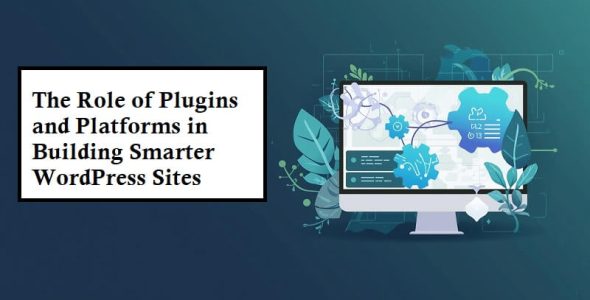Retail Reinvented: Leveraging WordPress for Agile Software Solutions
In the dynamic landscape of retail, staying competitive means constantly evolving to meet the ever-changing demands of consumers. With the rise of e-commerce, mobile shopping, and omnichannel experiences, retailers are faced with the challenge of delivering seamless and personalized interactions across multiple touchpoints. In this digital age, the integration of agile software solutions is crucial for retailers looking to adapt and thrive. One platform that has emerged as a versatile tool for retail software development is WordPress.
The Power of WordPress in Retail
WordPress, originally known as a blogging platform, has evolved into a robust content management system (CMS) that powers a significant portion of the web. Its flexibility, scalability, and extensive plugin ecosystem make it an ideal choice for building websites, e-commerce platforms, and custom applications tailored to the retail industry.
Flexibility and Customization
WordPress offers unparalleled flexibility, allowing developers to create highly customized solutions tailored to the unique needs of retail businesses. Whether it’s a simple online storefront or a complex omnichannel platform, WordPress can be tailored to fit any retail model.
Scalability and Performance
Scalability is essential for retail software solutions, especially as businesses grow and adapt to changing market conditions. WordPress’s retail software development with modular architecture and robust infrastructure enables seamless scalability, ensuring that websites and applications can handle increased traffic and transaction volumes without compromising performance.
Extensive Plugin Ecosystem
One of the most significant advantages of WordPress is its vast plugin ecosystem, which offers a wide range of functionality out of the box. From e-commerce integration to customer relationship management (CRM) tools, there’s a plugin available for almost every retail need. Additionally, WordPress’s open-source nature encourages innovation and collaboration within the developer community, resulting in constantly evolving solutions.
Agile Software Development in Retail
Agile software development has become the go-to approach for building software solutions in today’s fast-paced digital environment. By emphasizing iterative development, collaboration, and adaptability, agile methodologies enable retailers to respond quickly to market changes and customer feedback. When combined with the flexibility of WordPress, agile software development becomes even more powerful in the retail sector.
Iterative Development
Agile development methodologies, such as Scrum and Kanban, prioritize iterative development cycles over traditional waterfall approaches. This iterative approach allows retailers to deliver functional software increments quickly, gather feedback from stakeholders and end-users, and make adjustments based on real-world usage. With WordPress, developers can leverage its modular architecture to implement changes and updates rapidly, ensuring that retail solutions evolve in tandem with business requirements.
Collaboration and Communication
Effective collaboration and communication are essential components of agile software development. Cross-functional teams comprising developers, designers, marketers, and business stakeholders work together closely throughout the development process to ensure that the final product meets both technical and business objectives. WordPress’s user-friendly interface and collaborative features facilitate seamless communication and collaboration, enabling teams to work together efficiently regardless of their location.
Adaptability and Flexibility
Agile methodologies prioritize adaptability and flexibility, allowing retailers and e-commerce developers to respond quickly to market shifts, emerging trends, and customer preferences. By breaking down development tasks into manageable chunks and focusing on delivering value incrementally, retailers can continuously refine and improve their software solutions over time. WordPress’s modular architecture and extensive plugin ecosystem provide the flexibility needed to implement changes quickly and efficiently, ensuring that retail websites and applications remain responsive to evolving business needs.
Conclusion
As the retail industry continues to evolve, embracing agile software development methodologies and leveraging powerful platforms like WordPress is essential for staying ahead of the curve. By combining the flexibility, scalability, and extensibility of WordPress with agile principles such as iterative development, collaboration, and adaptability, retailers can create innovative software solutions that meet the needs of today’s digital consumers. Whether it’s enhancing the online shopping experience, streamlining operations, or driving customer engagement, WordPress offers endless possibilities for retailers looking to reinvent themselves in an increasingly competitive marketplace.
Interesting Related Article: Tips For Starting A WordPress Ecommerce Store.

 My Account
My Account 

